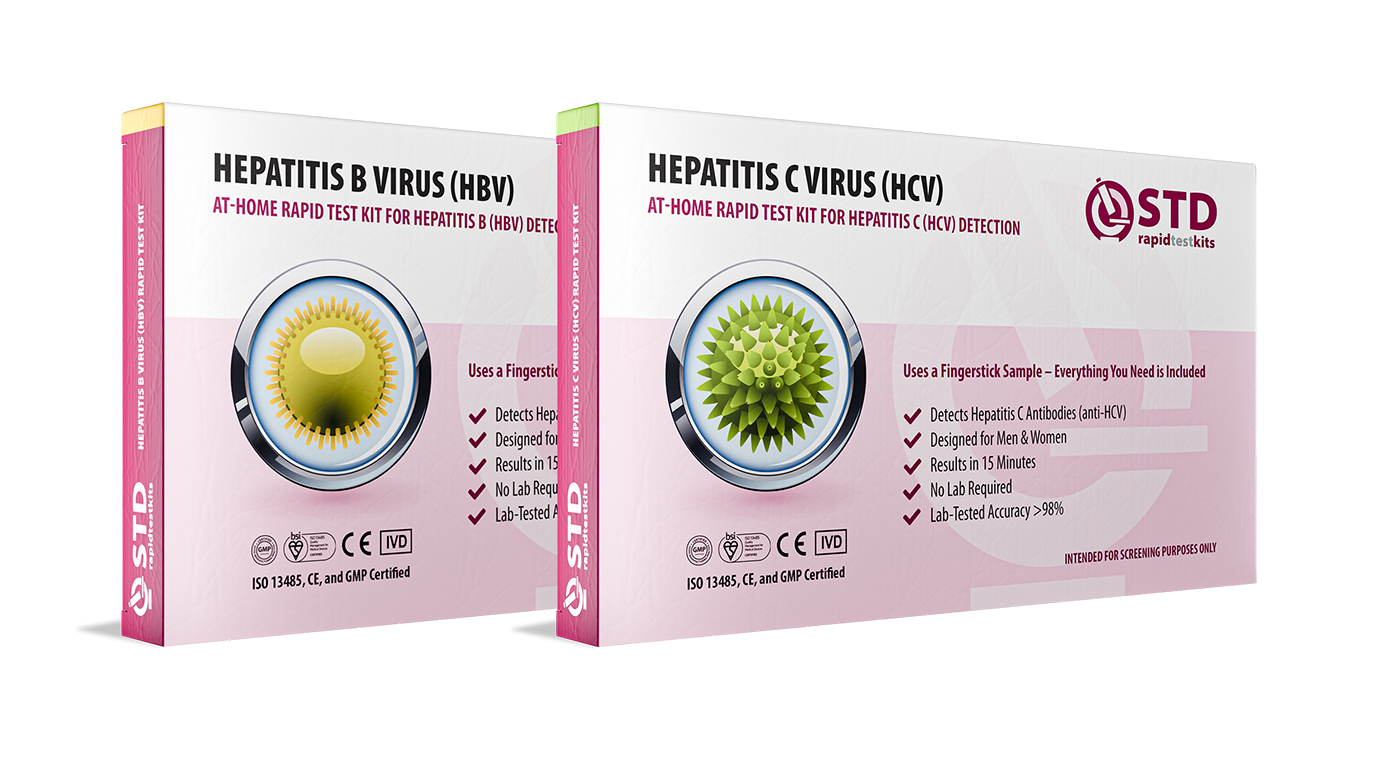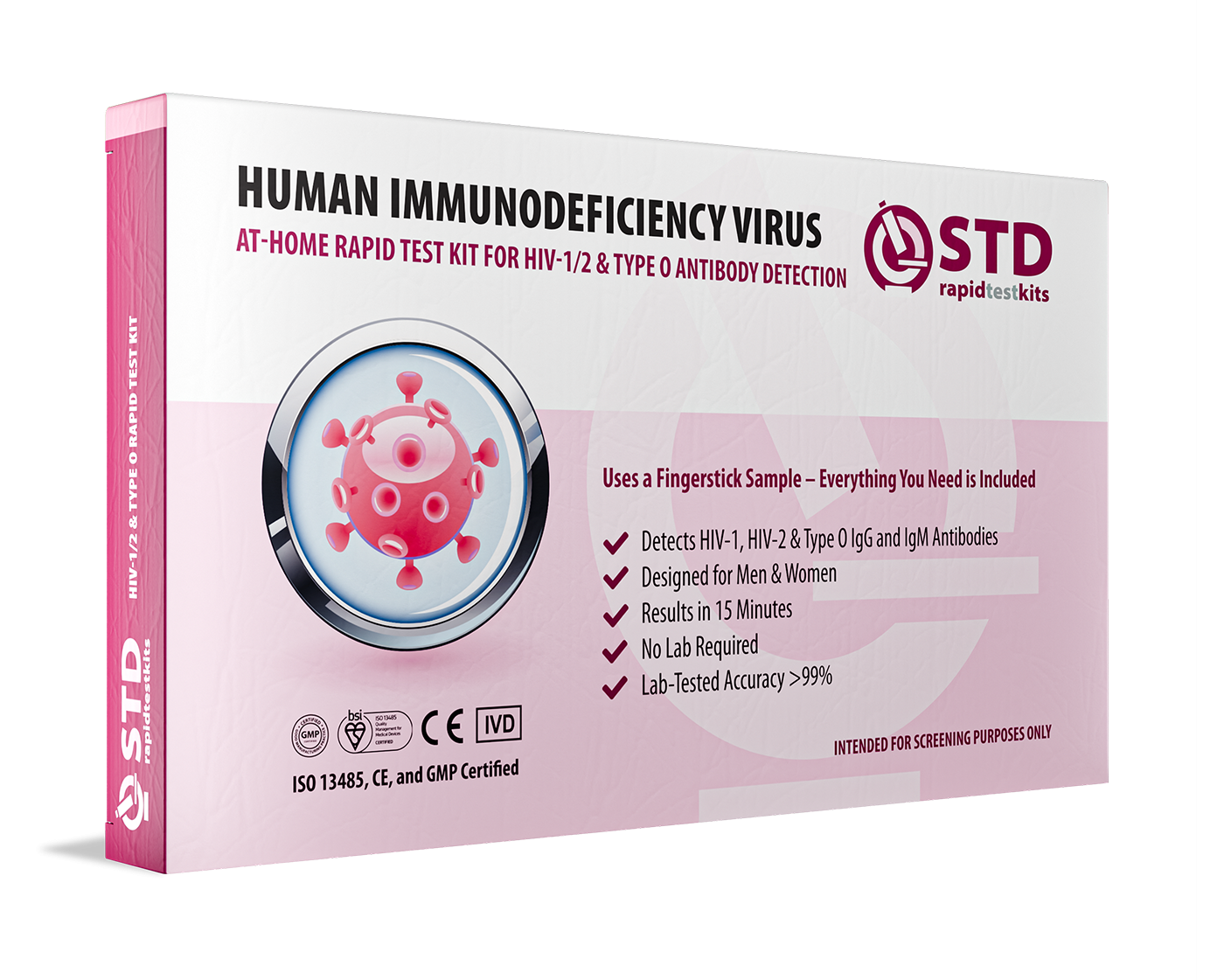Quick Answer: Ozempic may help reduce liver fat, inflammation, and insulin resistance in people with HIV or hepatitis, but long-term safety and drug interactions are still being studied. Always consult an HIV or liver specialist before starting.
For anyone living with HIV or hepatitis, managing your health isn’t just about viral suppression. It’s about fighting fatigue, weight changes, liver damage, and the slow-burn inflammation that eats away at your energy and organs. Now, a surprising new player is being talked about in waiting rooms and Reddit threads alike: Ozempic.
Originally created to treat type 2 diabetes, this GLP-1 drug is now being used off-label for everything from weight loss to fatty liver, sometimes by people living with HIV, Hepatitis C, or both. But can Ozempic actually help? Is it safe? Or are we just chasing another shiny pharma promise in a world that rarely centers our bodies?

People are also looking for: You’re Not ‘Gross’: Unpacking the STD Identity Crisis
Why Ozempic Is Entering the HIV and Hepatitis Chat
Ozempic (semaglutide) belongs to a class of medications called GLP-1 receptor agonists. It mimics a hormone that helps regulate blood sugar, suppress appetite, and slow digestion. But researchers have noticed something bigger: people on semaglutide are showing improvements in liver enzymes, reduced fat in the liver (especially in MASLD, the new term for fatty liver), and lower markers of inflammation, things people living with HIV and hepatitis struggle with daily.
In 2023, a study out of University College London found that HIV-positive individuals had higher rates of fatty liver even when their viral load was undetectable. This is partly due to old-school antiretroviral therapies and partly due to chronic low-grade inflammation. Add in hepatitis C or B coinfection, and the liver gets hit from all sides.
That’s where Ozempic started raising eyebrows. Could a diabetes drug also ease liver damage in HIV+ or coinfected people? Could it help with HIV-related weight gain, lipodystrophy, or metabolic syndrome? The data is early, but promising.
What the Research Actually Shows (and What It Doesn’t)
Let’s get clear: there is no large-scale, HIV-specific clinical trial for Ozempic. But researchers are beginning to study its effect in overlapping populations, especially those with metabolic dysfunction-associated steatotic liver disease (MASLD), formerly called NAFLD/NASH, which is common in people with HIV and hepatitis.
- One 2022 study in The Lancet Gastroenterology found semaglutide reduced liver fat content and improved fibrosis markers in patients with MASLD.
- Another trial published in the journal Hepatology showed significant reductions in ALT and AST levels, enzymes that spike with liver damage.
- Smaller case reports from clinics treating HIV-positive patients suggest that semaglutide may improve lipid profiles and help manage insulin resistance, two key issues for long-term survivors.
But none of these studies focus exclusively on HIV+ or HCV+ individuals. That’s a gap. The good news is trials are underway. The SLIM LIVER-HIV study, launched in 2024, is looking at exactly this: how semaglutide affects liver fat and metabolic health in people living with HIV.
What About Drug Interactions? (The Part Everyone’s Nervous About)
People living with HIV or hepatitis often take multiple daily medications, whether it’s ART, antivirals, or supplements for liver support. So when a new drug like Ozempic enters the picture, the first question is always: will it play nice with everything else?
So far, Ozempic doesn’t appear to have major interactions with common HIV meds like integrase inhibitors (e.g. dolutegravir) or protease inhibitors. It’s metabolized differently, through the kidneys, not liver enzymes like CYP3A4, which means it bypasses the classic drug-drug interaction route. But that doesn’t mean you’re in the clear.
- Hepatitis C patients on newer DAAs (like sofosbuvir/velpatasvir) may need closer monitoring. Some cases reported nausea or slowed digestion that interfered with timing of other meds.
- People with cirrhosis or advanced fibrosis may have altered Ozempic metabolism, which could increase side effects like vomiting or fatigue.
- GI symptoms (nausea, diarrhea, delayed gastric emptying) can affect nutrient absorption and may worsen HIV-related gut issues.
The best practice? If you’re considering Ozempic and you’re on ART or hepatitis treatment, loop in your liver specialist or HIV pharmacist first. Some HIV clinics are already integrating GLP-1s into metabolic care plans, so don’t be afraid to ask.
Check Your STD Status in Minutes
Test at Home with RemediumHepatitis B & Hepatitis C Test Kit

 For Men & Women
For Men & Women Results in Minutes
Results in Minutes No Lab Needed
No Lab Needed Private & Discreet
Private & DiscreetOrder Now $49.00 $98.00
For all 2 tests
Case Study: “I’m HIV+, On Treatment, and I Tried Ozempic Anyway”
Ty, 42, was diagnosed with HIV in 2008 and hepatitis C in 2013. He cleared his hep C in 2020 with DAAs, but his doctor warned him, “Your liver still looks angry.” Fatty liver. ALT over 70. His BMI hovered around 31. And the exhaustion? Constant.
“I wasn’t looking for weight loss,” he says. “I wanted energy. My nurse practitioner mentioned Ozempic as a maybe. I was scared; it’s a diabetes drug, right? But nothing else had worked.”
Within six months, Ty had lost 18 pounds, but more importantly, his liver enzymes dropped nearly 40%. His triglycerides stabilized. His HIV viral load stayed undetectable. And for the first time in years, he says, “I didn’t feel like I was drowning in my own body.”
This is one story, not a clinical trial. But more patients like Ty are sharing similar outcomes. Some clinics in urban centers are now quietly prescribing GLP-1s off-label for HIV+ or hepatitis patients with metabolic dysfunction.
Wait, so is Ozempic safe if you have HIV or hepatitis?
“Safe” is a moving target. No medication is one-size-fits-all, especially when your body’s already carrying the weight of two or more chronic infections. But here’s what we know so far about Ozempic’s safety profile in these populations:
- Liver strain: No direct hepatotoxicity reported, but caution advised in advanced fibrosis or cirrhosis.
- Immunocompromised status: GLP-1s don’t impact white blood cells or T-cell counts, and don’t interact with viral replication.
- GI impact: Can exacerbate HIV-related gut issues, especially if you already struggle with nutrient absorption.
- Hypoglycemia: Rare unless combined with insulin or sulfonylureas, less of a concern for HIV/HCV patients not on diabetes meds.
Bottom line? Most HIV+ and hep C patients tolerate semaglutide well, if they’re monitored. Side effects like nausea, constipation, and appetite suppression tend to fade after 4–8 weeks. But if you have cirrhosis, gut issues, or medication timing needs, you’ll want expert guidance.
Don’t wait and wonder, talk to your HIV or hepatology team. You deserve options, not silence.
When Liver Health Meets Identity, Shame, and Survival
If you’re living with HIV, hepatitis, or both, you already know that health doesn’t exist in a vacuum. Liver damage, insulin resistance, and weight gain aren’t just clinical metrics, they’re emotional. For many in the LGBTQ+ and BIPOC communities, medical trauma runs deep. We’ve been judged for our bodies, our meds, our numbers. We’ve watched doctors talk around us, not to us. So when something like Ozempic comes along, the question isn’t just “Will it work?” It’s also: “Will they even listen if I ask?”
For queer folks especially, fatphobia, HIV stigma, and medical gatekeeping collide in dangerous ways. Some providers still dismiss weight gain in HIV+ patients as “vanity,” ignoring the reality of lipodystrophy and metabolic syndrome. Others gatekeep Ozempic entirely, assuming it’s only for diabetics. Meanwhile, patients suffer.
Ozempic won’t fix that system. But it might help you reclaim some control. Whether it’s liver fat, exhaustion, or feeling like your body isn’t your own anymore, GLP-1s are starting to offer new hope. Quietly. Off-label. And usually only if you push for it.
You don’t owe your doctor perfection. But you do deserve care that sees your full picture.

People are also reading: What to Expect During Your First STD Test, Clinic vs. Home Edition
How to Bring This Up With Your Doctor (Without Getting Dismissed)
Let’s be real: even the most progressive providers can be behind on new data, especially when it comes to medications like semaglutide. If you’re considering Ozempic for reasons beyond diabetes, here’s how to prepare for that conversation:
- Track your symptoms: Fatigue, abdominal pain, weight gain, poor lipid levels, or elevated ALT/AST? These are medically relevant. Bring lab work if you have it.
- Use clinical terms: Say “metabolic dysfunction,” “HIV-associated fatty liver,” or “post-DAA fibrosis” if applicable. It helps frame your concerns.
- Cite recent research: Mention the SLIM LIVER-HIV trial or GLP-1 benefits for MASLD in coinfected patients.
- Ask directly: “Could semaglutide help manage my fatty liver or metabolic symptoms, even if I’m not diabetic?”
Some patients have also found success talking to a pharmacist, infectious disease nurse, or liver specialist before looping in their primary provider. And remember, you’re not asking for vanity meds. You’re asking for quality of life.
Take Back the Question Mark: Should You Try Ozempic?
If you’re HIV-positive, hepatitis-positive, or both, and dealing with weight shifts, liver issues, or exhaustion, Ozempic might be worth exploring. Not for thinness. Not for TikTok trends. But for survival, clarity, and maybe even healing.
We still need more data. We need larger trials with HIV+ participants, trans bodies, people of color, and folks on complex ART regimens. But the early results are encouraging. For many, Ozempic is already acting like more than a weight-loss shot. It’s helping people feel less inflamed, less tired, less stuck.
You deserve to know what’s possible, without shame, without silence, and without waiting for permission.
Whether it’s a combo test kit or a new conversation with your doctor, your next step matters. And we’re here to back you up.
Why Fatty Liver Hits Harder When You're Positive
If you’re living with HIV or a hepatitis virus, your liver is doing more than its fair share of work. Decades of meds, especially older ART regimens, can contribute to lipodystrophy and visceral fat buildup. Add in insulin resistance, high triglycerides, and coinfection with hep C or B, and your liver becomes a silent casualty of survival.
Doctors now call this disease MASLD (Metabolic Dysfunction-Associated Steatotic Liver Disease), and it shows up in up to 65% of people with HIV. But here’s the kicker: most patients don’t know they have it until it’s advanced. There are no obvious symptoms early on, just fatigue, mild pain, or slightly elevated ALT/AST levels in your labs.
Semaglutide isn’t a cure, but it may be one of the only options currently showing promise in reversing liver fat in this population. And for people who’ve already cleared hepatitis C, but are left with liver scarring, this drug might be a second chance.
Order Now $33.99 $49.00 Check Your STD Status in Minutes
Test at Home with Remedium
HIV Rapid Test Kit




What to Watch For If You Do Start Ozempic
Thinking of bringing it up with your provider? Here’s what to expect, both the good and the bad. Starting Ozempic can be life-changing, but it’s not without bumps along the way, especially for people already managing multiple conditions.
- Week 1–4: Expect nausea, reduced appetite, and slower digestion. Eat smaller meals. Stay hydrated. Ask about anti-nausea meds if needed.
- Week 4–12: You may begin to see weight loss, improved labs (like lower triglycerides or liver enzymes), and more stable energy. Side effects typically ease by now.
- Labs to monitor: Liver enzymes (ALT/AST), fasting glucose, hemoglobin A1C, triglycerides, and weight. If you have hep C or cirrhosis, your doctor may also monitor bilirubin or INR.
- Red flags: Persistent vomiting, sharp abdominal pain, signs of dehydration, or signs of hypoglycemia (especially if you’re on other blood sugar meds).
Keep a symptom journal. Talk to your pharmacist. And most importantly, don’t let dismissive providers stop you from asking for care that fits your full reality.
Your liver, your body, your call.
FAQs
1. Is it safe for me to take Ozempic if I have HIV?
Yes, but a doctor must always be there to watch over you. Ozempic isn't officially approved for HIV, but new research suggests it might help with metabolic problems that people with HIV often have, like insulin resistance and liver fat.
2. Does Ozempic have any effect on antiretroviral therapy (ART)?
There have been no reports of major interactions so far. But since every ART combo is different, you should talk to your HIV provider or pharmacist before starting Ozempic.
3. If I have hepatitis C, can I take Ozempic?
Yes, but if you have cirrhosis or advanced liver disease, you'll need to be watched closely. Ozempic doesn't seem to hurt the liver, but people with liver problems may have stronger side effects.
4. Will Ozempic make my fatty liver go away?
No, it won't cure it, but research shows that it can lower liver fat and inflammation, especially in people with MASLD (metabolic-associated liver disease), which is similar to HIV and hepatitis outcomes.
5. Is it safe for people with HIV to take Ozempic for a long time?
We don't know for sure yet. Early data shows that it is well-tolerated, but long-term trials in HIV+ populations are still going on.
6. Can Ozempic help with HIV-related lipodystrophy or fat redistribution?
Some patients say they feel better, especially around the stomach, but Ozempic isn't made to treat lipodystrophy that comes from HIV. We need more information.
7. What if I have both hepatitis C and HIV?
You're not the only one, and Ozempic may still help. Just make sure that both your HIV and liver care teams are on board to keep an eye on how things go and how they affect each other.
8. Is this just another fad for weight loss drugs?
Not for people who have hepatitis or HIV. Ozempic is not about looks for many people; it's about reducing liver inflammation, improving metabolic health, and getting back energy.
9. Can Ozempic make HIV symptoms worse?
There is no proof that it makes HIV worse directly. But nausea, loss of appetite, and tiredness can all affect your health, so see your doctor if these side effects get worse.
10. How can I ask my doctor about Ozempic without feeling bad about it?
Be sure and clear. Talk about your liver tests, how tired you are, and the research you've done. You're not asking for a trend; you're standing up for your body and your future.
You Deserve Answers, Not Assumptions
Living with HIV, hepatitis, or both means constantly navigating between silence and survival. Between systems that overlook your needs and bodies that ask for more than maintenance. Ozempic won’t fix everything, but for some, it offers real relief. Real energy. Real change.
If your doctor hasn’t brought it up yet, that doesn’t mean you can’t. Use your voice. Use your labs. Use the science. Whether it’s for liver health, fatigue, or reclaiming control over how your body feels, you’re allowed to ask. You’re allowed to matter.
And while you’re at it, don’t forget to check in on the rest of your health. STD Rapid Test Kits offers discreet, doctor-trusted testing you can do at home, because being proactive is powerful.
Sources
1. Semaglutide reduces severity of liver disease in people with HIV, study shows – Reuters
2. Semaglutide reduces severity of common liver disease in people with HIV – NIH
3. Semaglutide improves fatty liver disease and inflammation in people with HIV – aidsmap
4. Famous weight loss drug may help people with HIV get healthier, MUSC researcher says – MUSC News
5. Diabetes and weight loss drug semaglutide may also treat liver disease – Medical News Today
6. Can semaglutide slow aging and improve cognition in people with HIV? – POZ










